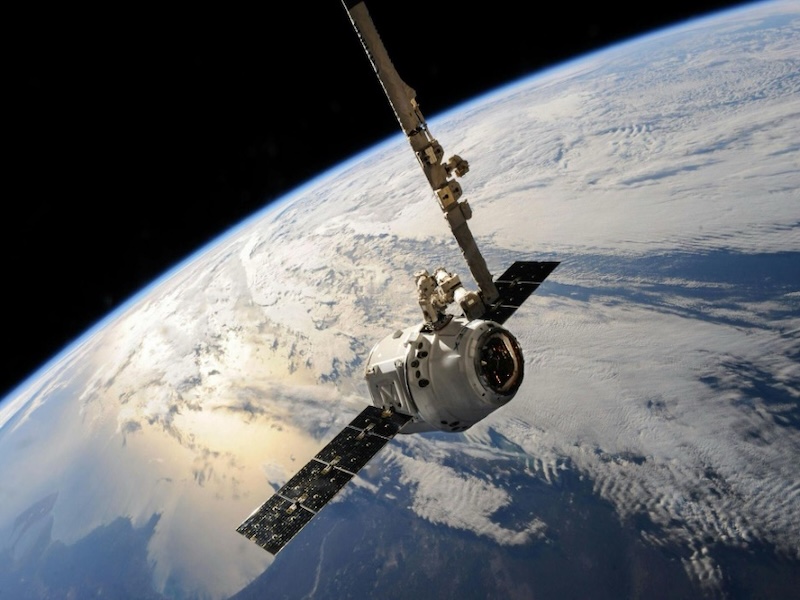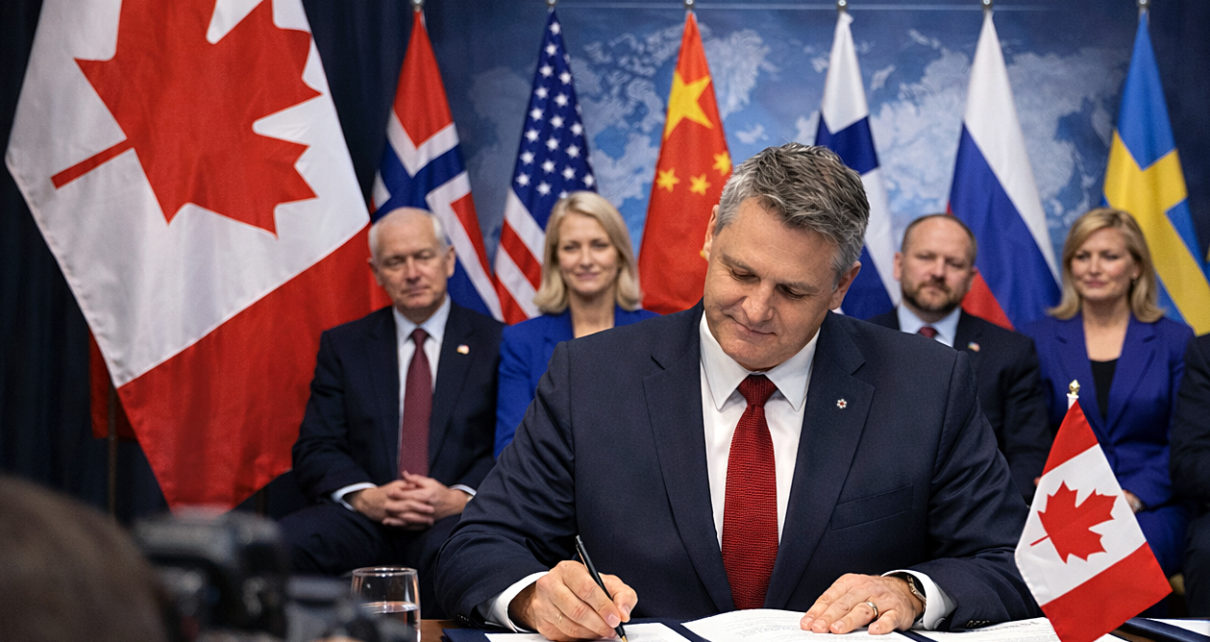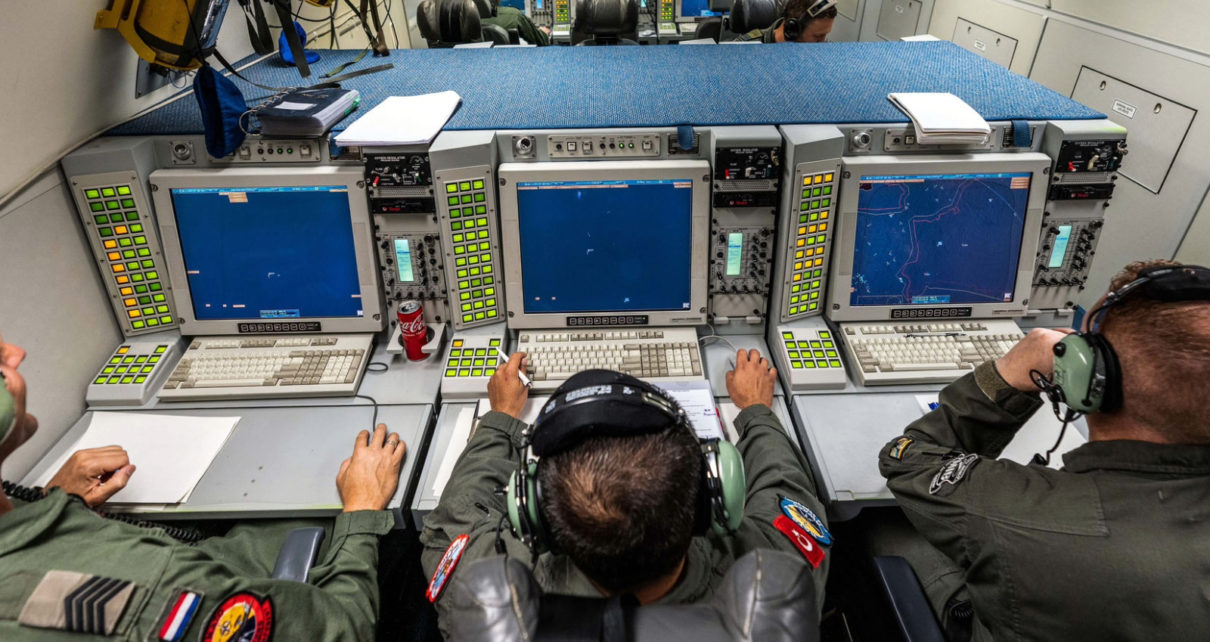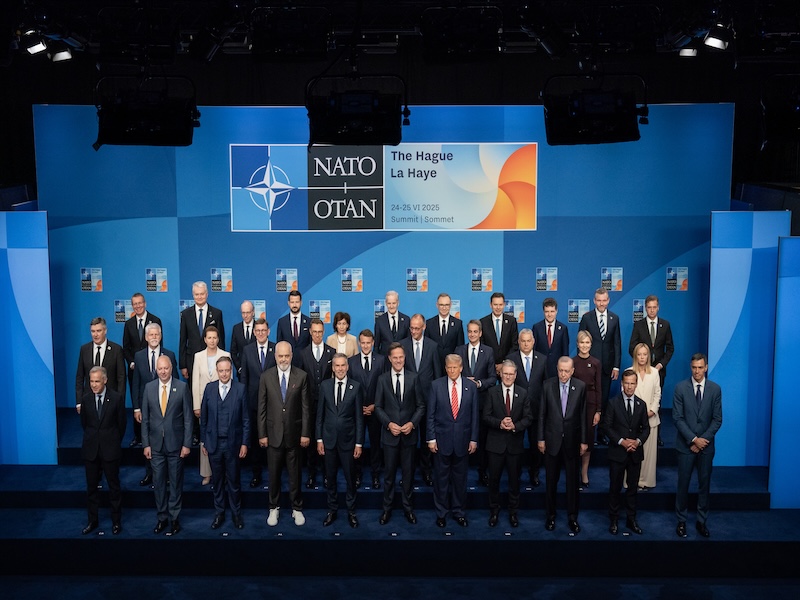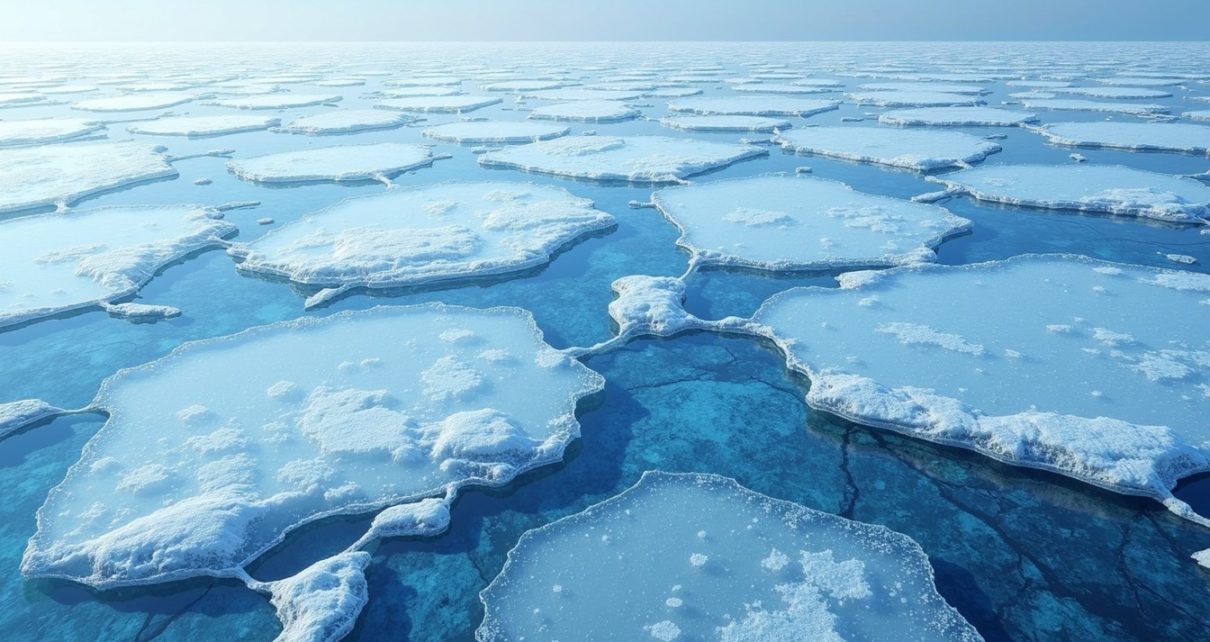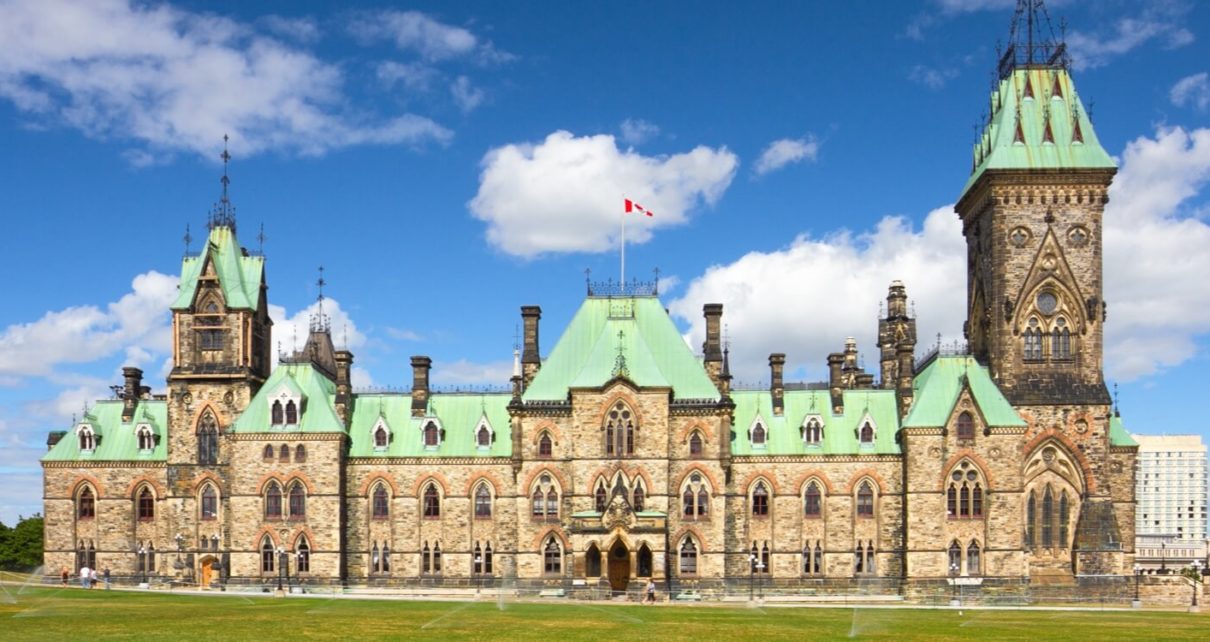Canada’s $60B+ Canadian Patrol Submarine Project marks a turning point in Arctic defence and strategic autonomy. This piece coauthored by Emma Zhang and Sanam Singh examines whether the procurement can restore under-ice capability and deliver long-term industrial and geopolitical returns.
Tag: Arctic Security
Canada’s Arctic Surveillance at Risk, Are Space Capabilities Enough to Defend Sovereignty?
The Arctic, a remote and expansive region, is heavily reliant on satellite surveillance to maintain domain awareness. As climate change accelerates, increased access to the region, along with its growing strategic and economic value, has drawn heightened interest from states such as Russia and China. The interests and activities of these actors raise security concerns Read More…
POWER PLAY IN THE ARCTIC: PART 5 – Blueprint for Canadian Arctic Leadership
*This is the fifth instalment of a six-part series. From a legal perspective, Canada’s ability to assert its sovereignty and security in the Arctic is hindered by the United Nations Convention on Law of the Sea (UNCLOS) and the Polar Code. Notably, while UNCLOS and the Polar Code respectively attempt to create a “standard framework Read More…
Arctic Sovereignty through Airborne Surveillance: Canada’s Acquisition of Airborne Early Warning & Control (AEW&C) Systems
While Canada’s military is often seen as a strong and modern fighting force, it also lacks many assets that are key to ensuring defensive capabilities, including Northern surveillance. Canadian ambitions to acquire Airborne Early Warning and Control (AEW&C) aircraft will revolutionize Northern intelligence gathering in order to bolster NORAD’s effectiveness and Canadian sovereignty. The Canadian Read More…
Canada’s Stance on NATO Enlargement
Introduction Since its inception in 1949, NATO has grown from 12 to 32 members, a process formally known as enlargement. In accordance with Article 10 of the North Atlantic Treaty, membership is open to all European countries so long as they commit to NATO’s principles and meet the Alliance’s requirement for defence spending, along with Read More…
Shielding the North: Why NATO Still Needs NORAD
NORAD began as a Cold War commitment between Canada and the United States to safeguard the skies and protect the North. Today. it has become a stage for Russia’s military expansion, China’s growing ambitions, and emerging threats that outdated systems can no longer reliably detect. The modernization of NORAD goes beyond new radar and missile defence technology, it reflects a broader commitment to protecting sovereignty and ensuring Canadians recognize that the Artic is no longer a remote frontier, it is the front line of our collective security and future.
From “Free Rider” to Frontline Partner: Canada’s Road to NATO 2% and Beyond
In January, U.S. President Donald Trump urged NATO members to lift defence spending from the long-standing 2 per cent goal to 5 per cent of GDP. This was met with sharp criticism in Europe, and NATO officials dismissed the idea as unrealistic. No ally, including the United States, spends anywhere near 5 per cent; only Read More…
Polar Promises: How Canada and NATO Can Defend the Arctic
Canada is seeing rising tensions on its southern border. While calls from the current US administration to make Canada the 51st state draw the public’s attention, there is another border that has seemed to slip the minds of most Canadians: the Arctic. Canada and Russia share a border through the Arctic, which has proven to Read More…
Where They Stand: Canada’s Federal Political Parties Defence Platforms 2025
This special report provides an objective overview of the newly elected minority Liberal government’s plans regarding defence and discusses proposals from other opposition parties.
All Eyes on Us: The Future of the Five Eyes Intelligence Group
With the robustness of the rules-based international order in question, multilateral agreements are more crucial than ever. Intelligence-sharing in particular, such as among the Five Eyes intelligence group, has played a critical role to Canadian and international security cooperation since the end of the Second World War. However, recent criticisms from the White House have called to remove Canada from the intelligence group altogether. What would this mean for the security of Canada and our allies’ ability to counter growing threats around the world?


